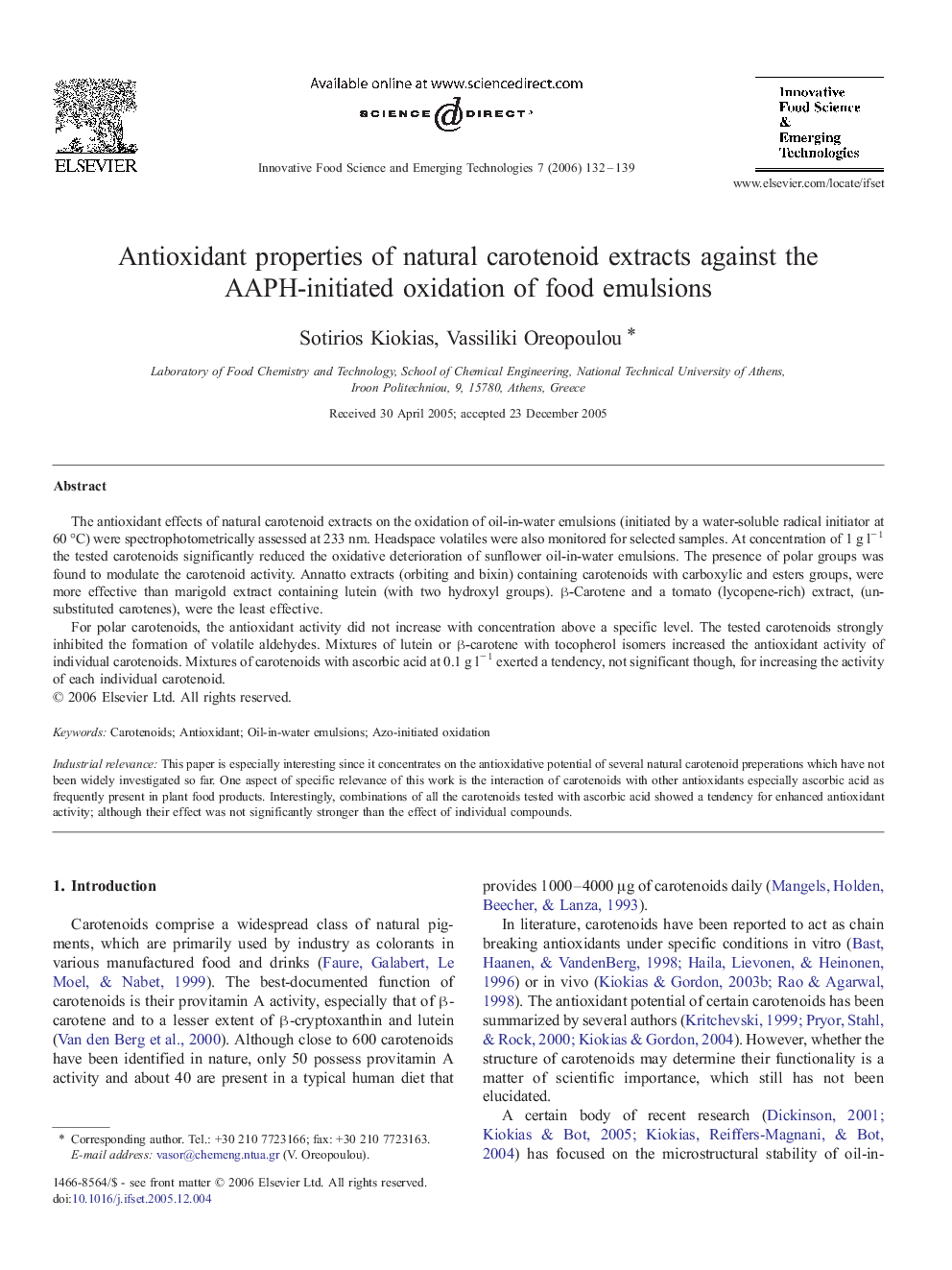| Article ID | Journal | Published Year | Pages | File Type |
|---|---|---|---|---|
| 2087404 | Innovative Food Science & Emerging Technologies | 2006 | 8 Pages |
The antioxidant effects of natural carotenoid extracts on the oxidation of oil-in-water emulsions (initiated by a water-soluble radical initiator at 60 °C) were spectrophotometrically assessed at 233 nm. Headspace volatiles were also monitored for selected samples. At concentration of 1 g l− 1 the tested carotenoids significantly reduced the oxidative deterioration of sunflower oil-in-water emulsions. The presence of polar groups was found to modulate the carotenoid activity. Annatto extracts (orbiting and bixin) containing carotenoids with carboxylic and esters groups, were more effective than marigold extract containing lutein (with two hydroxyl groups). β-Carotene and a tomato (lycopene-rich) extract, (un-substituted carotenes), were the least effective.For polar carotenoids, the antioxidant activity did not increase with concentration above a specific level. The tested carotenoids strongly inhibited the formation of volatile aldehydes. Mixtures of lutein or β-carotene with tocopherol isomers increased the antioxidant activity of individual carotenoids. Mixtures of carotenoids with ascorbic acid at 0.1 g l− 1 exerted a tendency, not significant though, for increasing the activity of each individual carotenoid.Industrial relevance: The goal of this work was to develop a model for quality and storage stability determination of confectionary products using crystallization of sugar shell in hard panning process as example. The model developed can successfully predict the concentration profile and growth of sugar crystals in a thin film and it’s industrial relevance is evident by the industrial financial support.
